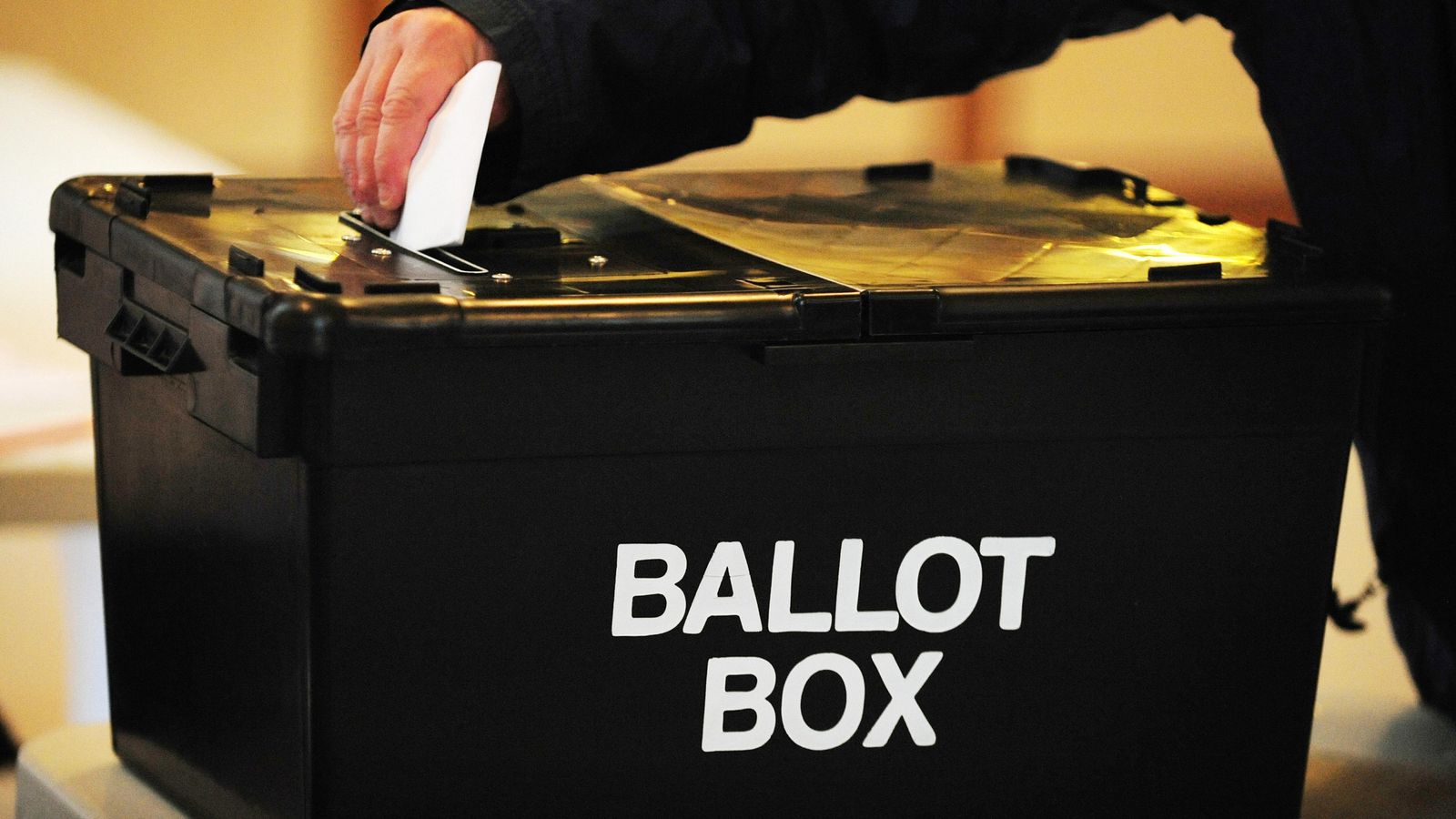Millions of people across the UK will head to the polls today to vote in the general election.
A total of 650 parliamentary constituencies are being contested in England, Scotland, Wales, and Northern Ireland, with polling stations open from 7am until 10pm.
Find more details of what you can expect here
There are around 40,000 polling stations in the UK and 46 million people are eligible to vote.
This is the first general election where voter ID will be required, after new rules were introduced in 2023.
There are 22 types of identification you can use, including a passport or driving licence.
Watch Sky News’ election coverage live from 9pm through to Friday
Boundary changes mean many people will vote in new or different constituencies from the last general election.
When all the votes are counted after the polls close, a party needs 326 seats for a majority in the House of Commons without relying on support from smaller parties.
The last general election was held in 2019, when then prime minister Boris Johnson won 365 seats, giving him an 80-seat majority.
Labour won 202 seats, the SNP 48, the Liberal Democrats 11, the DUP eight, Sinn Fein seven, Plaid Cymru four, the SDLP two, the Alliance party one, and the Greens one.
That was the fourth general election in a row won by the Tories, who also triumphed in 2010, 2015, and 2017.
The last Labour prime minister to win an election was Sir Tony Blair, who led his party to victory in 1997, 2001, and 2005.
This is the first election that Rishi Sunak and Sir Keir Starmer are fighting as leaders of the Conservative and Labour parties respectively.
Elections in the UK are usually held every four to five years. The latest this contest could have been held was in January 2025, but Mr Sunak made the decision to go to the polls earlier.
Elections have typically been held in May, though the election in December 2019 was the first winter election in almost a century.


